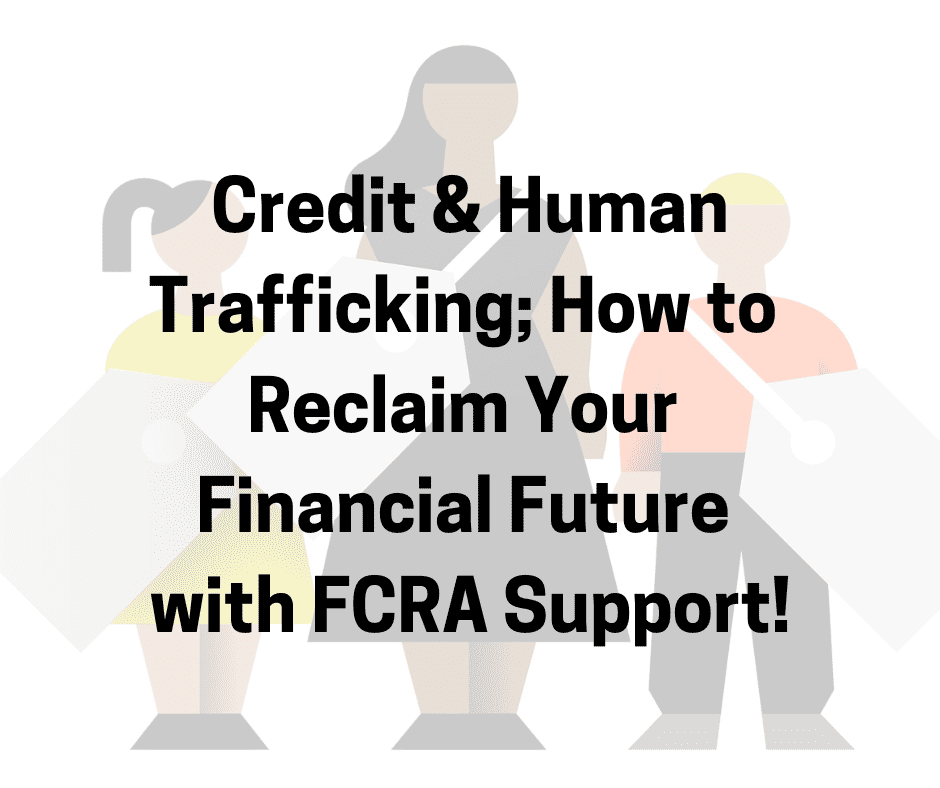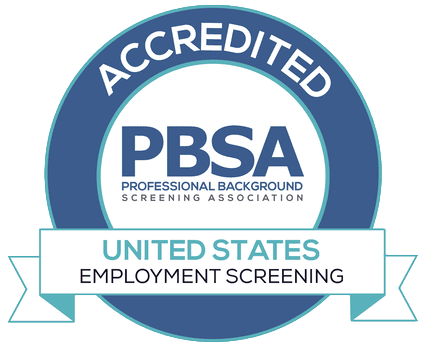Human trafficking is a heinous crime, and survivors often face a challenging path to recovery. One unexpected obstacle can be a damaged credit report due to a trafficker’s actions. They might steal identities, open fraudulent accounts, or rack up debt in their victim’s name, leaving survivors struggling to secure housing, access loans, and rebuild their lives.
Thankfully, the Fair Credit Reporting Act (FCRA) now provides crucial protections for human trafficking survivors. Let’s review what this means for you and the specific FCRA documents involved:
The Debt Bondage Repair Act (DBRA):
- Passed in December 2021, this act prohibits credit reporting agencies (CRAs) from including negative information on your credit report if it resulted from human trafficking.
- To remove this information, you’ll need to submit a request to the CRA with documentation proving your status as a trafficking victim.
FCRA Documents for Survivors:
There are two main types of documents needed for the FCRA process:
-
Proof of Identity: The CRA needs to verify your identity to ensure you’re authorized to make changes to your report. This typically involves documents like a driver’s license, passport, or social security card.
-
Trafficking Documentation: This documentation establishes your status as a trafficking victim. Here are the acceptable forms:
- Determination by a Government Entity or Court: A document issued by a federal, state, tribal, or local government agency, or a court of competent jurisdiction, officially recognizing you as a victim of trafficking.
- Documentation from a Qualified Organization: Documentation from a qualified anti-trafficking organization authorized by a government entity to identify victims. This could include their report outlining your case.
- Self-Attestation Form (SAF): If you don’t have the above documents, you can submit a Self-Attestation Form (SAF) stating you were a trafficking victim. However, this form requires certification from a representative of a government entity, court, authorized NGO, or licensed human trafficking professional.
Finding the Right FCRA Documents:
- Government Agencies: Contact your local law enforcement agency, human trafficking task force, or social services department to inquire about obtaining a trafficking determination document.
- Qualified Organizations: Reach out to anti-trafficking NGOs in your area. Reputable organizations like Polaris Project (https://polarisproject.org/) might be able to assist you.
- Self-Attestation Form: You can find a sample SAF on the Consumer Financial Protection Bureau (CFPB) website (https://www.consumerfinance.gov/about-us/newsroom/cfpb-helps-survivors-mitigate-the-financial-consequences-of-human-trafficking/). Each CRA might have a slightly different version on their website as well.
Additional Resources:
- National Human Trafficking Hotline: 1-888-373-7888
- Polaris Project: https://polarisproject.org/
- Consumer Financial Protection Bureau (CFPB): https://www.consumerfinance.gov/about-us/newsroom/cfpb-helps-survivors-mitigate-the-financial-consequences-of-human-trafficking/
- Credit Reporting Agencies: Each CRA (Equifax, Experian, TransUnion) has a dedicated section on their website for Human Trafficking survivors with instructions and forms for submitting your request. You can find them by searching for “[Equifax human trafficking]” (or “[Experian human trafficking]” or “[TransUnion human trafficking]”).
Remember, You’re Not Alone:
Rebuilding your credit after human trafficking can be overwhelming, but there is support available. The resources listed above can guide you through the process. Don’t hesitate to reach out for help. You are a survivor, and you deserve a fresh start financially.
Extra Tips:
- Consider placing a fraud alert on your credit report to prevent further fraudulent activity.
- Be cautious about who you share your personal information with.
- Monitor your credit report regularly for any suspicious changes.
By understanding your rights and utilizing available resources, you can move forward with a clean credit slate and a brighter financial future.


